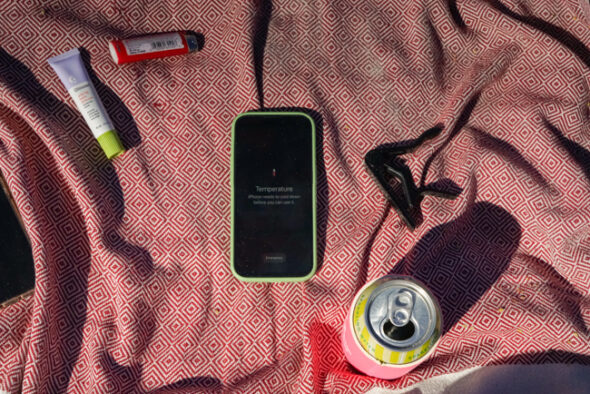By Sara Orr
Last week, my 15-minute walk from my room to class was interrupted by a sharp panic that stopped me in my tracks: I realized I had left my cell phone in my room.
It was 10:55 a.m., my class started at 11:00 a.m., and the building that my class was in was in sight. This was a very busy day, and having classes, work, and meetings back-to-back, I would not have the opportunity to go back to my dorm at any other point in the day to get it, meaning I would be phone-less until after dinner time at least.
I was forced to make a tough decision. I could go to class, tell my friends that I saw around campus that I had left my phone in my room in case they were trying to get in touch with me, and continue my day. Or, I could go back to my dorm to get my phone, which would have meant I would sacrifice my attendance in my 11:00 a.m. class (since the class would have been halfway over by the time I got back).
I went back and got my phone.
As much as we are told about the dangers of technology addiction, it took this experience for me to truly take a step back and gain perspective on my digital usage. It made me realize that my actions were no longer autonomous, but controlled by a device that I thought I had control over.
It’s almost like an abusive relationship. We know how bad it is to be so reliant on our phones, but we make excuses in our own heads to justify our overuse of it because we can’t imagine living without it.

We have forgotten that we can decide what level we subscribe to digital and social media culture, though it feels as though they are so integrated into our lives that there is no choice.
Of course, there are specific needs that require us to have phones, such as staying in touch with people (which could even be a safety concern), and being able to be contacted for work reasons. Beyond the necessities that are met by phones, they also provide us with connection to our social circles, the news, and the world around us.
The question becomes: do these benefits outweigh the cost?
It seems completely unrealistic to drastically backpedal on our society’s reliance on phones, especially since it is the job of the apps we use to make them as addictive as possible to increase their revenue. It is a constant battle against our own device to be able to reap the benefits of it (interconnectedness and knowledge) without letting it control us.
I delete TikTok or Instagram for a week and suddenly I am out of touch with the news, out of touch with my friends, and out of touch with the trend cycle.
However, when I am allowed the opportunity to put down my phone and look around me, I realize how out of touch I am with the literal things happening around me.
I have fallen victim to letting people’s warnings about technology go in one ear and out the other. At the end of the day, I can beat a dead horse and say the same thing, but it comes down to this:
I wish I had left my phone in my room that day.




Be the first to comment on "Choice or chore: Our technology addiction"